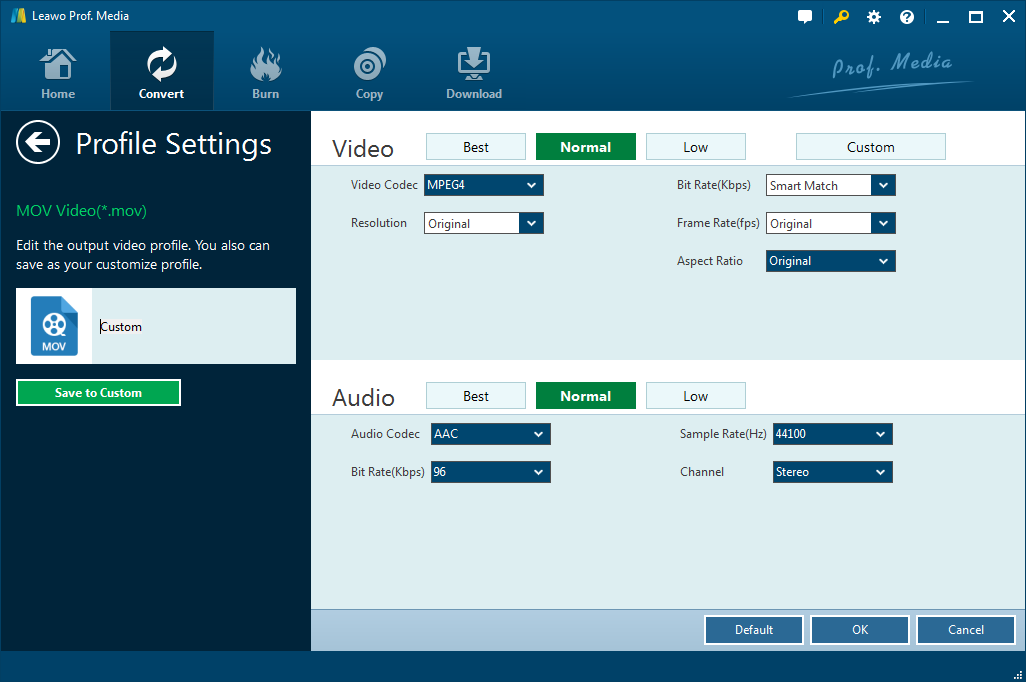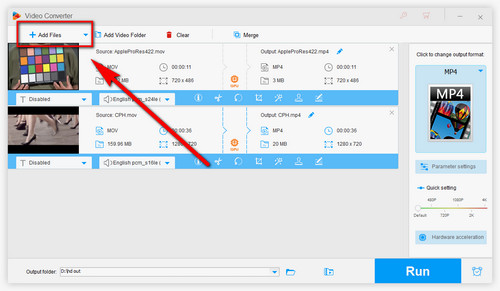- Select a MOV file (such as *.mov, *.qt).
- Click button 'Convert' to start upload your file.
- Once upload completed, converter will redirect a web page to show the conversion result.
Quicktime To Avi Converter free download - Free MP4 to AVI Converter, Free FLV to AVI Converter, Free MOV to AVI Converter, and many more programs. First of all, Quicktime and Avi are just “containers” as such, with the ability to contain video footage compressed with different codecs at different data rates. If you’re on a pc you’ll probably want to stick to using.avi (unless you have to move the files to a mac) and if you’re on a mac you have no choice other than using quicktime.
- If file upload process takes a very long time or no response or very slow, please try to cancel then submit again.
- This converter cannot support encrypted or protected video files.
- If you selected options, be sure to enter valid values.
- If the source file is a very large file, it will take more time to upload, be sure to select a valid file.
- MOV (QuickTime Movie) is a multimedia container that contains one or more tracks, developed by Apple, used natively by the QuickTime framework. The file extensions can be .mov, .qt.
- AVI (Audio Video Interleaved) is a multimedia container format introduced by Microsoft, allows synchronous audio-with-video playback.
- MOV to MP4
MP4 (MPEG-4 Video) - MOV to 3GP
3GP (3GPP Multimedia) - MOV to FLV
FLV (Flash Video) - MOV to MKV
MKV (Matroska Video) - MOV to WMV
WMV (Windows Media Video) - MOV to WEBM
WebM (WebM Video)
- MP4 to AVI
MP4 (MPEG-4 Video) - MKV to AVI
MKV (Matroska Video) - WMV to AVI
WMV (Windows Media Video) - FLV to AVI
FLV (Flash Video) - VOB to AVI
VOB (Video Object) - MPG to AVI
MPG (MPEG Video) - 3GP to AVI
3GP (3GPP Multimedia) - RMVB to AVI
RMVB (RealMedia Variable Bitrate) - MTS to AVI
MTS (MPEG Transport Stream) - M2TS to AVI
M2TS (MPEG-2 Transport Stream) - AVCHD to AVI
AVCHD (Advanced Video Coding High Definition) - MPEG to AVI
MPEG (MPEG Video) - XVID to AVI
Xvid (Xvid Video) - F4V to AVI
F4V (Flash MP4 Video) - RM to AVI
RM (RealMedia) - DIVX to AVI
DivX (DivX Media) - ASF to AVI
ASF (Advanced Systems Format) - WEBM to AVI
WebM (WebM Video) - WTV to AVI
WTV (Windows Recorded TV Show) - M4V to AVI
M4V (iTunes Video) - TS to AVI
TS (Transport Stream) - HEVC to AVI
HEVC (High Efficiency Video Coding, H.265)

AVI or Audio Video Interleave was developed by Microsoft as the file format for its media player application. It is an old container. MOV was developed for Mac OS and QuickTime application by Apple. MOV supports MP4 codecs like H.264 while AVI does not.
On the Internet, where the compatibility demands are high, AVI had become very popular. This format is supported by almost all players, even portable devices like video players and video smart phones. Because of the growing needs of the users of this format, Microsoft abandoned AVI container and launched WMV with newer and more features but for the later version of the Windows Media Player.
The AVI container has no native support for modern MPEG-4 features like B-Frames. Hacks are sometimes used to enable modern MPEG-4 features and subtitles, however, this is the source of playback incompatibilities.
AVI files do not contain pixel aspect ratio information. Microsoft confirms that 'many players, including Windows Media Player, render all AVI files with square pixels. Therefore, the frame appears stretched or squeezed horizontally when the file is played back.'

Quicktime Avi Conversion
More modern container formats (such as QuickTime, Matroska, Ogg and MP4) offer more flexibility, however, projects based on the FFmpeg project, including ffdshow, MPlayer, xine, and VLC media player, have solved most problems with viewing AVI format video files.
While the AVI format has been superseded by more advanced formats like MP4, MOV or WMV, people continue to use AVI because of its universal portability. AVI files can be played on almost any computer or device (unless the format has been hacked for supporting MP4).
Quicktime Avi To Mp4
The QuickTime (.mov) file format functions as a multimedia container file that contains one or more tracks, each of which stores a particular type of data: audio, video, effects, or text (e.g. for subtitles). Each track either contains a digitally-encoded media stream (using a specific codec) or a data reference to the media stream located in another file. Tracks are maintained in a hierarchical data structure consisting of objects called atoms. An atom can be a parent to other atoms or it can contain media or edit data, but it cannot do both.
The ability to contain abstract data references for the media data, and the separation of the media data from the media offsets and the track edit lists means that QuickTime is particularly suited for editing, as it is capable of importing and editing in place (without data copying). Other later-developed media container formats such as Microsoft's Advanced Systems Format or the open source Ogg and Matroska containers lack this abstraction, and require all media data to be rewritten after editing.